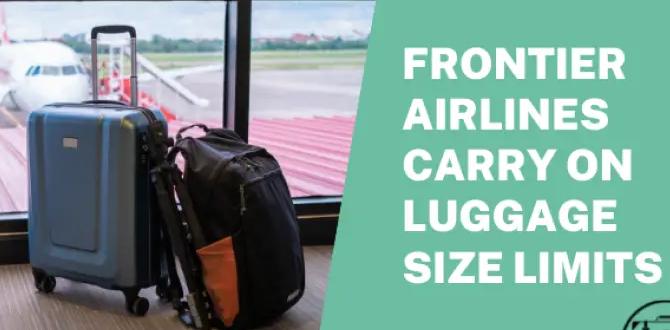Exploring Addis Ababa is generally safe with a little awareness. Focus on well-trafficked tourist areas and business districts, and exercise common sense precautions against petty crime. Avoid demonstrations and be cautious at night in less familiar neighborhoods.
For travelers planning their trip to Addis Ababa, understanding safe areas and potential dangers is key to a comfortable and enjoyable experience. As Ethiopia’s vibrant capital, Addis Ababa offers a wealth of culture, history, and bustling city life. While it’s a city that welcomes visitors with open arms, like any large metropolis, it’s wise to be informed about which neighborhoods are generally considered secure for tourists and what precautions might be necessary. Knowing where to go and what to look out for ensures your adventure is filled with amazing discoveries, not unnecessary worries. This guide will help you navigate Addis Ababa with confidence, covering the areas to embrace and those to approach with extra caution.
Navigating Addis Ababa: Your Guide to Safe Areas and Potential Dangers
Addis Ababa is a city of captivating contrasts, where ancient traditions meet modern development. For many travelers, the idea of visiting a new African capital can bring a mix of excitement and apprehension. It’s completely natural to wonder about personal safety, especially when you’re far from home. The good news is that with a bit of planning and awareness, exploring Addis Ababa can be a incredibly rewarding journey. We’re here to break down the city’s landscape, helping you identify the areas that are most welcoming and what common sense precautions can keep you safe and sound. Think of this as your friendly travel compass, pointing you towards enjoyable experiences and steering you clear of potential hiccups.
Understanding Addis Ababa’s Urban Fabric
Addis Ababa, meaning “New Flower” in Amharic, is the political and diplomatic heart of Africa, home to the African Union headquarters and numerous embassies. This international presence contributes to a generally stable environment in many central areas. The city is vast and diverse, with distinct neighborhoods that cater to different needs and vibes. From sprawling markets to serene diplomatic enclaves, understanding these differences is the first step to a smooth trip.
For any international travel, staying informed is crucial. Organizations like the U.S. Department of State provide valuable travel advisories for countries around the world. For Ethiopia, these advisories often highlight general safety concerns and recommend increased vigilance, which is a standard advisory for many capital cities globally. It’s always a good practice to check these resources before you depart.
Generally Safer Areas for Visitors
When planning your stay in Addis Ababa, focusing on certain districts can significantly enhance your sense of security. These areas are typically well-lit, patrolled, and frequented by tourists and business travelers, making them excellent bases for exploration and accommodation.
Bole District: The Hub of Activity
The Bole district is often the first point of call for many visitors, primarily because it hosts Addis Ababa Bole International Airport (ADD). It’s a modern, dynamic area known for its concentration of hotels, restaurants, cafes, shopping malls, and businesses.
Why it’s considered safe: Bole is a busy commercial and residential area with a strong international presence. Many embassies and international organizations are located here, contributing to increased security presence and well-maintained infrastructure.
What to expect: You’ll find a wide range of services, from luxury hotels to budget-friendly guesthouses, diverse dining options, and lively nightlife. It’s a great place to get acquainted with the city.
Tips for staying comfortable: Stick to the main, well-lit streets, especially when walking at night. Taxis are readily available, so utilize them for longer distances or late-night travel.
Kazanchis: The Diplomatic and Business Center
Located near Bole, Kazanchis is another key area, often characterized by its numerous embassies, international organizations, and business headquarters.
Why it’s considered safe: This district is highly secure due to the presence of diplomatic missions and major international bodies. Security is generally tighter, and the infrastructure is well-developed.
What to expect: It’s a more commercial and administrative zone, meaning it’s very active during weekdays. You’ll find corporate offices, some hotels, and good transport links.
Tips for staying comfortable: Like Bole, it’s a secure area for exploring during the day. Being in a hub of international activity means you’ll encounter many other travelers and expatriates.
Arada District (Downtown): Historic Heart with Caution
Arada, often referred to as downtown Addis Ababa, is the historic commercial center. It’s a bustling and vibrant part of the city, offering a glimpse into traditional Ethiopian commerce and street life.
Why it’s generally safe: Historically and currently, it remains a central part of city life. Many government buildings and historically significant sites are located here. Its constant activity means good general visibility.
What to expect: This is where you’ll find Merkato (though see below for specific advice), Piazza, and many older buildings. It’s a good place to experience local markets and see more of the city’s daily rhythm.
Tips for staying comfortable: While generally safe, it’s busier and more chaotic than Bole or Kazanchis. Exercise extra vigilance regarding your belongings, especially in crowded market areas. Stick to well-trodden paths, and if you feel uncomfortable, move towards more populated spots or hail a taxi.
CMC Road and Areas Near Major Hotels
Areas surrounding popular tourist hotels, such as those in and around Bole and Kazanchis, are often well-regarded for safety due to the concentrated tourist infrastructure and consistent security. Roads like the main CMC (Colonial Mission Church) road are major arteries with good lighting and regular traffic.
Potential Dangers and How to Mitigate Them
While Addis Ababa is a wonderful city, it shares common urban challenges with many major cities worldwide. Being aware of potential risks and knowing how to avoid them is part of smart travel.
Petty Crime: Pickpocketing and Bag Snatching
This is the most common concern for travelers in any large city. Pickpocketing and opportunistic bag snatching can occur, particularly in crowded places.
Where it’s more likely: Bustling markets (like Merkato), crowded public transport, busy streets, and tourist attractions.
How to mitigate:
Be aware of your surroundings: Stay alert, especially in crowded areas.
Secure your valuables: Keep your wallet and phone in front pockets or a secure inner pocket. Consider a money belt or a cross-body bag that you can keep in front of you.
Don’t flash cash or expensive items: Use ATMs within banks or secure locations.
Avoid distractions: Be wary of people who try to distract you to facilitate a theft.
Traffic and Road Safety
Addis Ababa’s traffic can be intense. Road infrastructure is improving, but pedestrian safety can sometimes be challenging.
What to expect: Busy roads, varying adherence to traffic rules, and occasional congestion.
How to mitigate:
Use reputable taxis: Pre-book taxis through your hotel or use known ride-sharing apps if available and reliable. Avoid hailing random taxis, especially at night, unless you are very familiar with them.
Cross roads carefully: Look both ways multiple times before crossing. Use pedestrian crossings where available, but don’t assume drivers will stop. It can be helpful to wait for a locals or groups of people to cross with.
Be cautious at night: Roadside lighting can be inconsistent in some outer areas.
Scams and Overcharging
Like many tourist destinations, Addis Ababa can have individuals who attempt to scam visitors. This can range from inflated prices to fabricated stories.
Common Scams:
Unsolicited “guides”: Individuals may approach you offering tours or help, then demand payment later.
“Friendship” scams: People strike up conversations and try to lead you to shops where you’ll be pressured to buy at inflated prices.
Taxi overcharging: Agree on a fare before starting your journey or ensure the meter is used and accurate.
How to mitigate:
Be firm but polite: If approached by someone offering unsolicited help, politely decline. “No, thank you” is sufficient.
Stick to official services: Book tours through reputable agencies or your hotel. Use official taxi stands or apps.
Do your research: Have an idea of typical prices for common items and services.
Demonstrations and Political Gatherings
While less common in tourist-centric areas, political demonstrations or public gatherings can occur. These can sometimes lead to unexpected disruptions or unrest.
What to expect: Large crowds, potential for heightened police or military presence, and possible road closures.
How to mitigate:
Stay informed: Monitor local news and be aware of any planned events. Your hotel can be a good source of information.
Avoid large gatherings: If you see a demonstration forming, steer clear.
Nighttime Safety
While many areas are safe during daylight, exercising extra caution at night is advisable, especially if you are exploring unfamiliar neighborhoods.
Where to be cautious: Quiet side streets, unlit areas, and districts far from the main tourist or business centers.
How to mitigate:
Use taxis at night: Always opt for a reputable taxi service for travel after dark.
Stay in well-lit, populated areas: If walking, choose main roads with other people around.
Inform someone of your plans: Let your hotel or a friend know where you are going.
Specific Areas to Approach with Caution: Merkato
Merkato is one of Africa’s largest open-air markets and a place of incredible energy and commerce. It’s a must-see for its authentic feel, but it demands a higher level of awareness.
What it offers: A sensory overload of sights, sounds, and smells. You can find almost anything here, from spices and textiles to electronics and livestock.
Why caution is needed: Its sheer size and density make it a hotspot for petty crime. Pickpockets and scammers can easily blend into the crowds.
Tips for visiting Merkato:
Go with a guide: Consider hiring a reputable local guide experienced with Merkato. They can navigate the crowds, help with purchases, and keep you safe.
Travel light: Carry only essentials. Leave valuable jewelry, excessive cash, and unnecessary electronics at your hotel.
Be firm but friendly: Bargain respectfully, but be prepared to walk away if prices are too high or you feel pressured.
Secure your belongings: Wear your bag in front of you, preferably a cross-body bag with a secure closure.
Avoid going alone or at dusk: The market is busiest and most chaotic in the morning and early afternoon.
Travel Comfort and Daily Necessities
As Michael C. Herrera of Journey Essentials, I always emphasize that comfort and preparedness are paramount for any journey. This includes having access to daily necessities that ensure you can focus on your travel experience without added worry. For some travelers, this might mean having discreet access to adult or child diapers for long flights, sensitive constitutions, or as a precautionary measure. Knowing that these can be discreetly purchased or arranged in a large city like Addis Ababa can ease travel anxiety. While specific brands might vary, larger pharmacies (like those found in Bole or around major hospitals) or specialized medical supply stores are good places to inquire. Planning for these personal needs ahead of time, or knowing where to find them locally, is part of stress-free travel.
Transportation in Addis Ababa
Getting around Addis Ababa is an integral part of the visitor experience. Understanding your options and their safety aspects will make journeys smoother.
| Transportation Mode | Pros | Cons | Safety Tips |
| :———————— | :—————————————————————- | :———————————————————————————- | :———————————————————————————————————————————————– |
| Ride-Sharing Apps | Convenient, cashless payment, can track journey, often predictable fares. | Availability can vary, app glitches, sometimes higher prices during peak demand. | Use official app versions, ensure driver matches app details, share journey with a contact. |
| Airport Taxis | Reliable pick-up directly from the airport, fixed rates often available. | Can be more expensive than city taxis, still wise to confirm fare upfront. | Use official airport taxi services; avoid touts. |
| Hotel Taxis/Concierge | High level of reliability and safety, often used for tours. | Can be the most expensive option. | Trust your hotel’s recommendations; they vet drivers for safety and service. |
| Blue and White Taxis | Widely available, most common form of transport, affordable. | Fares need negotiation, can be crowded, driving styles can be assertive. | Agree on fare before departure, be aware of surroundings. Not always ideal for first-time visitors or late at night without prior experience. |
| Minibuses/Public Buses| Extremely cheap, authentic local experience. | Overcrowded, can be confusing to navigate routes, stops are not always clear. | Best for the adventurous traveler who is comfortable with crowded public transport. Not recommended if safety or comfort is a primary concern. |
| Walking | Great for exploring specific, well-trafficked neighborhoods. | Roads can be busy, footpaths inconsistent, not ideal for long distances or at night. | Stick to well-lit, populated main streets. Be aware of traffic and street vendors. |
Essential Travel Tips for Addis Ababa
To ensure your trip to Addis Ababa is safe and enjoyable, here are some consolidated tips:
Stay Connected: Obtain a local SIM card to easily stay in touch and use data for navigation and communication.
Learn Basic Phrases: Knowing a few Amharic phrases like “Selam” (Hello) and “Ameseginalehu” (Thank you) can go a long way.
Respect Local Customs: Dress modestly, especially when visiting religious sites. Be mindful of local traditions and etiquette.
Stay Hydrated: Drink bottled water only and stay hydrated, especially during warmer months or if you’re active.
Be Wary of Over-Friendliness: While Ethiopians are known for their hospitality, be cautious if strangers are overly insistent or request favors quickly.
* Keep Copies of Documents: Carry photocopies of your passport and visa separately from the originals.
Frequently Asked Questions
Is Addis Ababa safe for solo female travelers?
Yes, Addis Ababa is generally safe for solo female travelers, especially if they exercise common sense precautions. Staying in well-regarded hotels, using reputable transportation, and dressing modestly can enhance comfort and safety. Areas like Bole and Kazanchis are particularly safe due to their high activity and international presence. It’s always advisable to be aware of your surroundings and avoid walking alone in isolated areas at night.
What is the best way to get around Addis Ababa safely?
For safety and convenience, using reputable services is recommended. Ride-sharing apps (like Ride or ZayRide), pre-booked taxis through your hotel, or taxis from official stands are generally safe options. Negotiate fares beforehand with blue and white taxis, or ensure the meter is used. While public transport is available, it can be crowded and less comfortable for tourists concerned about safety.
Are there specific areas I should absolutely avoid in Addis Ababa?
While Addis Ababa doesn’t have universally “dangerous” no-go zones for tourists, it’s wise to be extra cautious in very crowded and chaotic markets like Merkato if you are not with a guide, and to avoid poorly lit or deserted areas after dark. Generally, sticking to well-trafficked neighborhoods, business districts, and areas around major hotels is advisable.
What should I do if I encounter a scam or feel unsafe?
If you encounter a scam, firmly but politely decline and walk away. If you feel unsafe, move towards a populated area, seek assistance from hotel staff, or hail a reputable taxi. It’s always a good idea to research common tourist scams in advance and stay aware of your surroundings. If a situation escalates, don’t hesitate to seek help from local authorities or your embassy.
Is it safe to use ATMs in Addis Ababa?
Using ATMs in Addis Ababa is generally safe, but precautions should be taken. It’s best to use ATMs located inside banks during their operating hours or within secure commercial centers like shopping malls in areas like Bole. Be mindful of who is around you when withdrawing cash and shield your PIN. It’s also wise to inform your bank of your travel plans before you depart.
How can I prepare for personal comfort needs, like adult diapers, during my trip?
For travelers who require adult or child diapers for comfort or health reasons, planning is key. While not as widely available as in some Western countries, larger pharmacies in central areas like Bole, or around major hospitals, are your best bet for finding such products. You can also inquire with your hotel concierge; they may be able to help you locate them or arrange for delivery. Packing a small supply for the initial days is also a good strategy.





